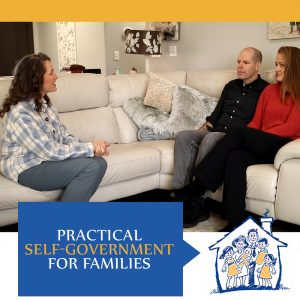Preference VS Principle – Family Unity
At the lastTSG Couples' RetreatI had an inspiring conversation with a couple about situations they were trying to improve at their home. The father brought up a topic which impressed me deeply. As we were analyzing their relationships with their children, and making plans for how to solve family problems together, this father said, “I am trying to figure out when I am correcting the children because of preference and when I am correcting them because of principle.”
After assessing himself, this father felt like he might have been correcting the children too often, and by so doing ruining the unified feeling in the home. He wondered if he should just calm down and let some things slide because they really aren't that big of a deal.
Things People Hate
We all have things that drive us crazy. My husband hates it when people leave lights on if someone isn't in the room. I don't like it when people load the cups on the wrong side of the dishwasher. Don't ask me who made a right and a wrong side on a dishwasher, but I'm sure a wrong side does exist. Another fetish of mine is when people leave food out on the counter to rot. I have friends who really don't like it when their children don't match their outfits, and go wild when a child runs outside without shoes on.
The list of things people hate could go on and on. From over-toasted toast to people who don't take their dish over after a meal or don't remove their shoes before coming in the house; people have their hot buttons and anxieties.
But, should these personal hot buttons and anxieties be corrected in our children?
Aren't these things just preferences? If I prefer the dishwasher to be loaded a certain way, should I really take it personally that someone else loads it differently? No. I need to be able to accept a no answer on that one for sure. I am hurting myself and my child if I micro manage everything that child does and says. They need to have the freedom to learn which way they think the dishwasher should be loaded. We all need scientific moments in our lives when we figure out what works and what doesn't.
However, I should teach the child how to load the dishwasher when they are young, or before I turn the job over to the child, so that they learn the skill the best way I can teach it at some point. That is part of my responsibility as a parent.
Loading the dishwasher is a simple skill taught to help a child learn organization and efficiency. If a person chooses to organize differently later on, it is not a big deal. But, other behaviors that cause anxiety to us, like taking a dish over after a meal and leaving food out on the counter to rot are actually a violation of principle.
Parenting Principles
If a child doesn't obey the family rule to take over his dish after a meal or leaves food out to rot, then he is not honoring his parents, or acknowledging their sacrifice for him. His behavior is selfish. Parents have a duty to teach children family unity and to respect them as parents.
In the conversation with this father I explained that most of the things we feel anxious about are actually based on principles, so they need to be corrected. Every family has a list of standards they adhere to which are rooted in moral and religious beliefs. These standards and beliefs are principles the family holds dear. Anything that goes against afamily's standardsis a no answer and needs to be corrected.
Basic Instructions
Likewise, morally speaking, instructions given by parents need to be followed by children because part of the parent role is to instruct the children. Parents should be honored no matter the instruction. If a child can't follow a simple instruction from parents then their heart needs to be given the opportunity to change by being assertively corrected. A child won't find happiness in relationships unless they first learn how to honor parents. And, parents won't find peace and happiness as a parent until they learn aboutlovingly correcting child behavior problems.
The thing we need to sensor is which instructions need to be given, and those that are just purely fetishes and should be left to the decision of the child. For instance, if a parent tells the child to clean the toys up in the yard, the child needs to say okay because of the principle of honoring her parents. But, what order she actually puts the toys and tools away in really has no principle to govern it. The parents need to make sure the child willingly obeys them, but they don't need to micro manage the whole chore. Let the child figure it out, unless they ask for help, or obviously need help knowing what to do.
Micro Managing Children
As this thoughtful father talked about trying to improve the feeling of unity in his home, it was clear that he knew he had a tendency to micro manage his children to the point of disconnecting from them. The tasks or process of following an instruction often became more important than the person he was talking to.
It is common for a us to recognize a problem in ourselves like this and over correct. This father could assume that he shouldn't instruct or correct his children at all, but just let them figure things out on their own. If he follows this path, he will soon be back to micro managing because the children will be lost and begin to flounder in their role as child. The children will become disrespectful and selfish, which will drive the father back to micro managing the children and disconnecting from them again.
Principle not preference is the key parents need to understand to determine when to correct the children. They must recognize that honoring parents is the principle children need, but that in the moments when the children are problem solving how they will honor the parent's instructions there may not necessarily be a right or a wrong way; it may just be a matter of preference.






